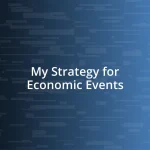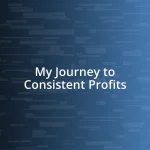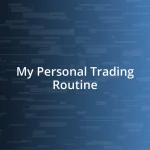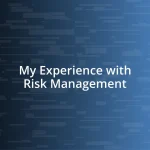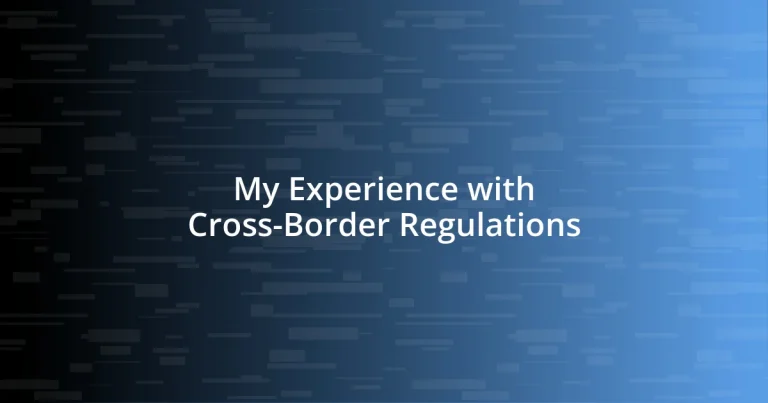Key takeaways:
- The complexity of cross-border regulations requires businesses to stay proactive and seek local expertise to navigate legal and compliance challenges effectively.
- Building strong communication strategies and fostering relationships with partners can significantly mitigate risks and enhance collaboration in international trade.
- Embracing feedback, adapting strategies based on local insights, and maintaining a flexible mindset are essential for success in the dynamic landscape of cross-border operations.
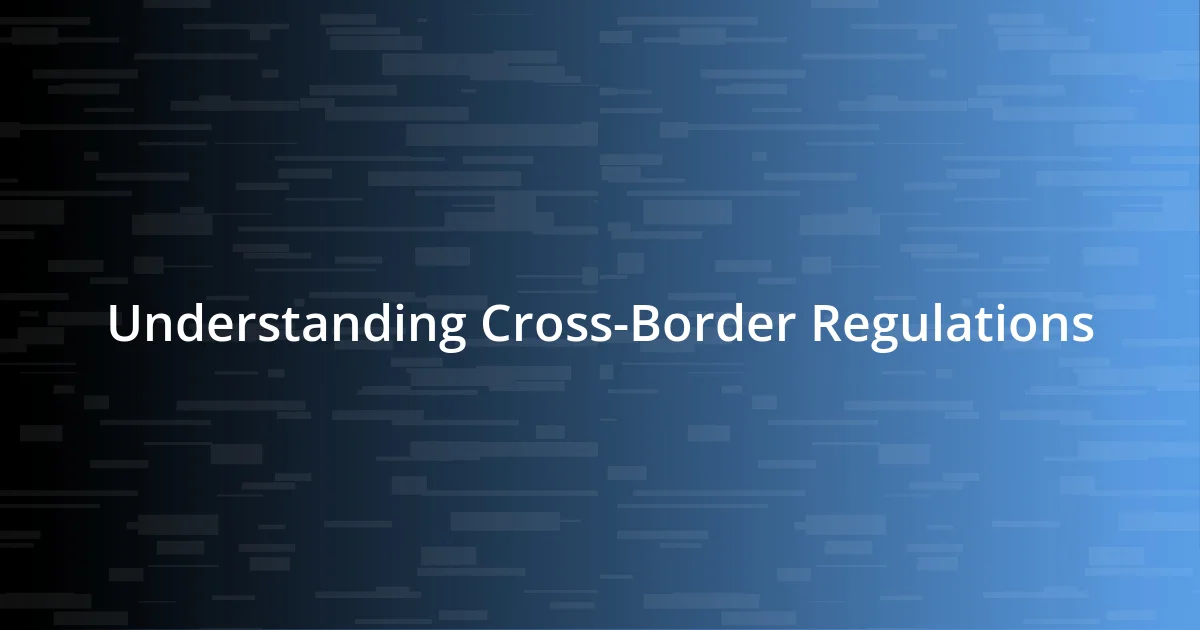
Understanding Cross-Border Regulations
Understanding cross-border regulations can often feel like navigating a complex labyrinth. From my experiences, I’ve learned that each country has its unique legal frameworks shaped by its history and culture. Have you ever found yourself lost in the sea of paperwork and compliance requirements? I certainly have, and it’s no surprise that many businesses face overwhelming challenges when attempting to engage in international trade.
I remember attending a conference where a regulatory expert shared an eye-opening story about a small business that missed a crucial compliance deadline, incurring hefty fines. It really struck me how something as simple as an overlooked regulation can have profound consequences on business continuity. Often, I reflect on how vital it is to stay informed about these regulations, not just for compliance but for the competitive edge they can provide.
Navigating through tariffs, taxes, and trade agreements isn’t just about understanding the law; it’s about fostering relationships across borders. I’ve experienced firsthand that building strong connections with local experts in target markets can make a world of difference. Have you ever sought out local knowledge when entering a new market? Doing so can transform your perspective and enhance your approach to cross-border trade.
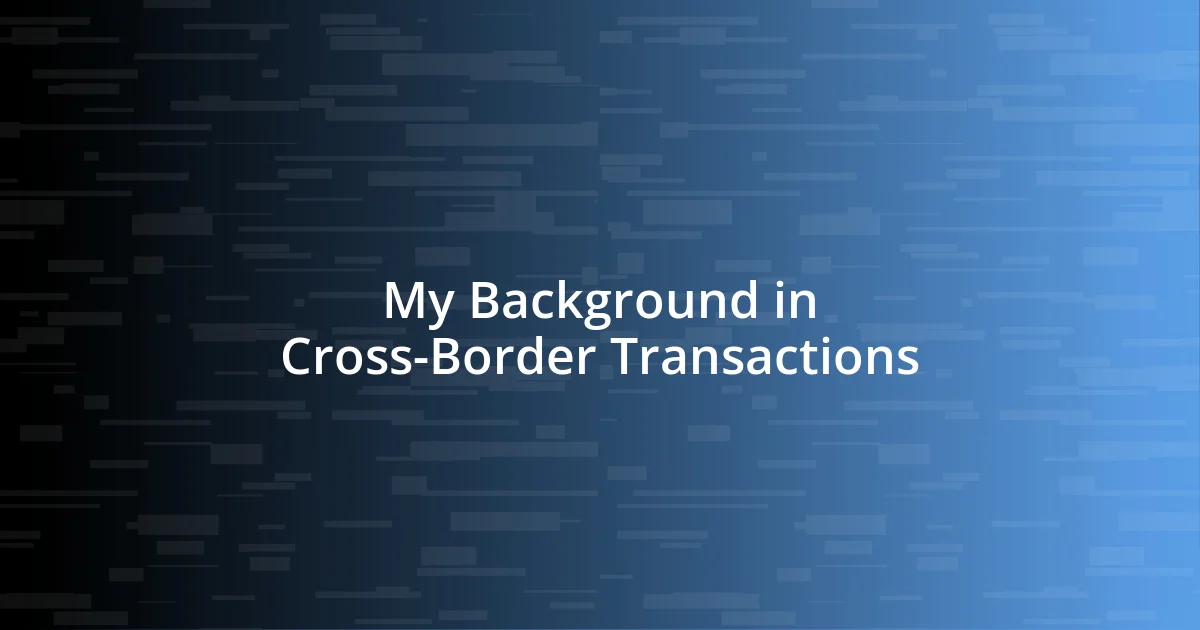
My Background in Cross-Border Transactions
My journey into cross-border transactions began somewhat unexpectedly. Working in an international trade company, I found myself managing a project that required insight into multiple regulatory environments. It was fascinating yet daunting; I vividly recall the late nights reviewing the intricacies of each country’s import/export laws and the weight of ensuring compliance.
- Developed expertise in navigating tariffs and trade agreements.
- Collaborated with local legal teams to understand specific regulations.
- Gained firsthand experience in managing compliance checks during negotiations.
- Adapting strategies based on cultural nuances proved essential in my approach.
One memorable instance was when I helped a client launch their product in a new market. It wasn’t just about paperwork; my heart raced as we navigated through unexpected local regulations. This experience taught me the importance of adaptability and the necessity of being proactive, reinforcing my belief that success in cross-border transactions often hinges on preparedness and a solid relationship with local stakeholders.
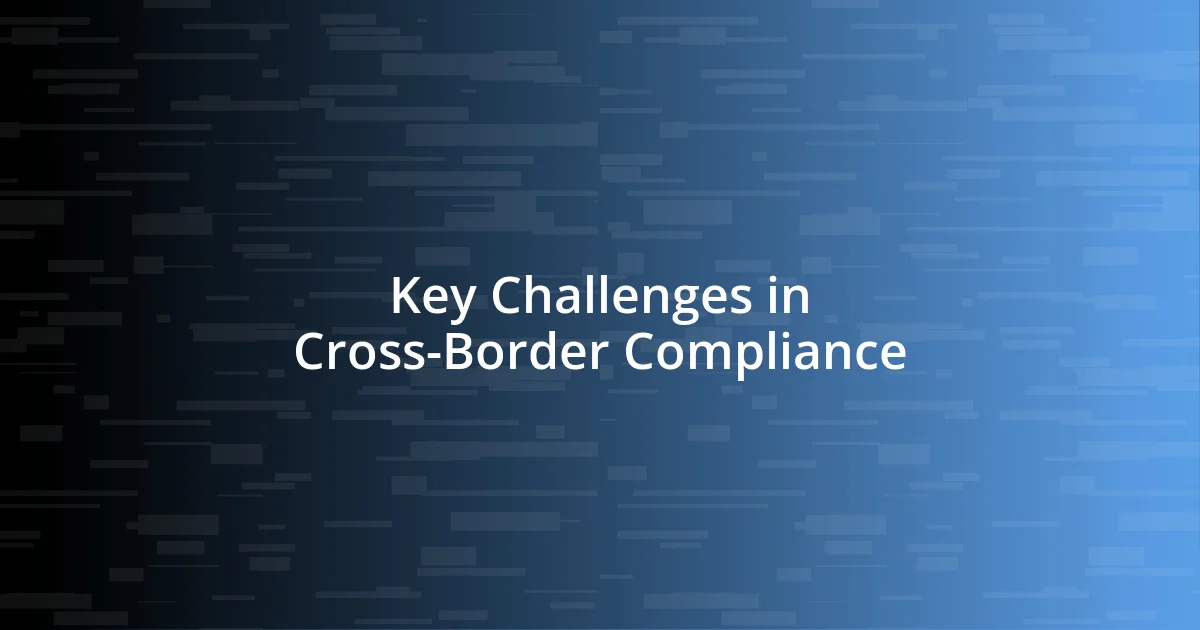
Key Challenges in Cross-Border Compliance
When diving into cross-border compliance, I can’t help but note the sheer complexity of differing regulations. I once found myself in a knotty situation where I misjudged the impact of local data protection laws on our marketing strategy. The anxiety of that moment was palpable; we nearly lost a crucial partnership due to non-compliance. It’s clear that without an intimate understanding of these laws, businesses risk not only penalties but also their reputations.
Another significant challenge emerges from the inconsistent interpretation of trade agreements across jurisdictions. I still recall a frustrating negotiation where parties had differing views on tariff classifications, nearly derailing our progress. It was a wake-up call about how important it is to seek clarity from reliable legal resources and maintain open dialogues with partners. Have you encountered similar misunderstandings that left you reeling? I certainly have, and it’s these experiences that fuel my passion for diligent cross-border research and communication.
Lastly, the issue of evolving regulations can feel like a perpetual moving target. I remember a particular instance where a country I was working with suddenly revised its import regulations just days before our shipment. The panic was real! Thankfully, our proactive approach and relationship with a local consultant helped us navigate the last-minute changes. This reinforced my belief that building strong local ties can spell the difference between chaos and compliance.
| Challenge | Personal Experience |
|---|---|
| Complexity of Regulations | Faced penalties due to misunderstanding local data laws. |
| Inconsistent Interpretations | Nearly derailed a negotiation over tariff classifications. |
| Evolving Regulations | Last-minute changes nearly disrupted a vital shipment. |
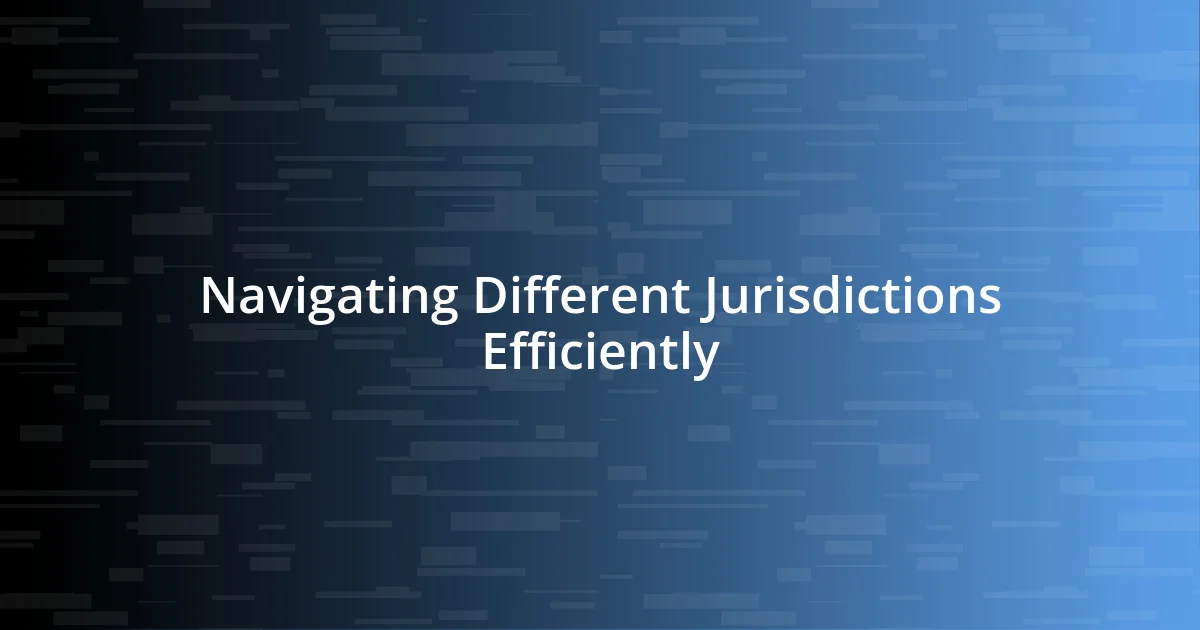
Navigating Different Jurisdictions Efficiently
Navigating different jurisdictions has always been an intricate dance for me. I recall a time when we were expanding into a new market, and I was overwhelmed by the varying customs procedures. The tension in the air was palpable as we rushed to submit documents that seemed endless. I often thought, “How could something so tedious impact our future success?” This moment highlighted the necessity of clarity and focus when dealing with the legal nuances specific to each country.
In my experience, leveraging local experts turned out to be a game-changer. I once partnered with a regional consultant who provided invaluable insights that simply weren’t available through generic resources. There was a palpable sense of relief when I realized that their knowledge helped us avoid potential pitfalls and streamline our entry process. Have you ever made a connection that shifted your perspective on a challenge? I certainly have, and it’s these relationships that can truly illuminate the path when navigating complex jurisdictions.
Cultural sensitivities also play a significant role in how regulations are perceived and enforced. I remember visiting a new site and witnessing firsthand how local customs influenced regulatory compliance. It was eye-opening to see how respect for local practices could not only ease our navigation but also foster goodwill. Wouldn’t it be remarkable if more companies approached cross-border strategies with an understanding of the local landscape? This experience underscored my belief that efficient navigation requires not just knowledge of the laws but also an appreciation for the culture behind them.
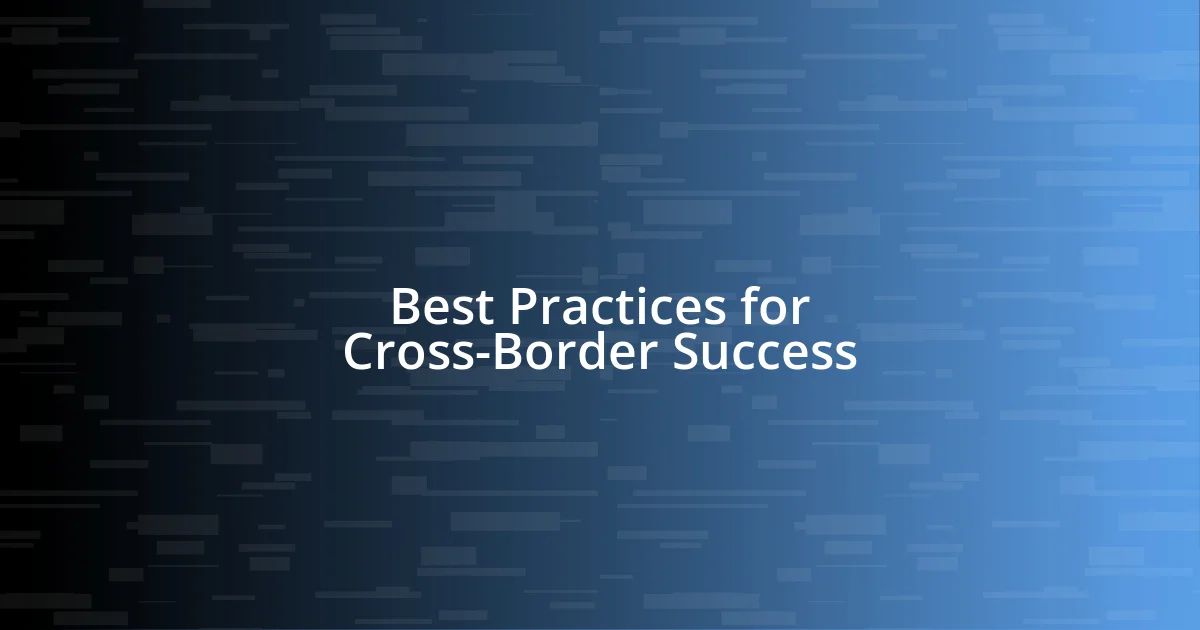
Best Practices for Cross-Border Success
One effective best practice for cross-border success is to invest in comprehensive training for your team. Early in my career, I was part of a workshop designed to enhance our understanding of international trade regulations, and it was a game changer for all of us. The mixture of anxiety and excitement during those sessions transformed into confidence as we grasped the intricacies of compliance. Have you ever experienced a moment where knowledge truly empowered you? I certainly have, and it’s that empowerment that can drive a team to make informed, strategic decisions in the face of complex regulations.
Building a robust communication strategy is another cornerstone of cross-border success. I vividly recall the time when our team initiated weekly check-ins with our partners overseas. The experience felt refreshing as we exchanged insights, aligned objectives, and built an open channel for addressing concerns. This proactive approach not only minimized misunderstandings but also fostered a collaborative spirit. Have you considered how regular communication can mitigate risks in your cross-border operations? I can assure you from my experience that it plays a crucial role in cultivating trust and responsiveness.
Finally, adopting a flexible mindset is essential when dealing with the unpredictable nature of cross-border regulations. I’ve encountered numerous situations where last-minute changes felt like hurdles. However, I learned that approaching these challenges with agility led to creative solutions. For instance, when we faced a sudden change in import taxes, our team brainstormed alternative strategies that turned a potential setback into a win. Isn’t it fascinating how a little flexibility can open up new possibilities? Based on my journey, embracing change can be your strongest asset in navigating the intricate world of cross-border operations.
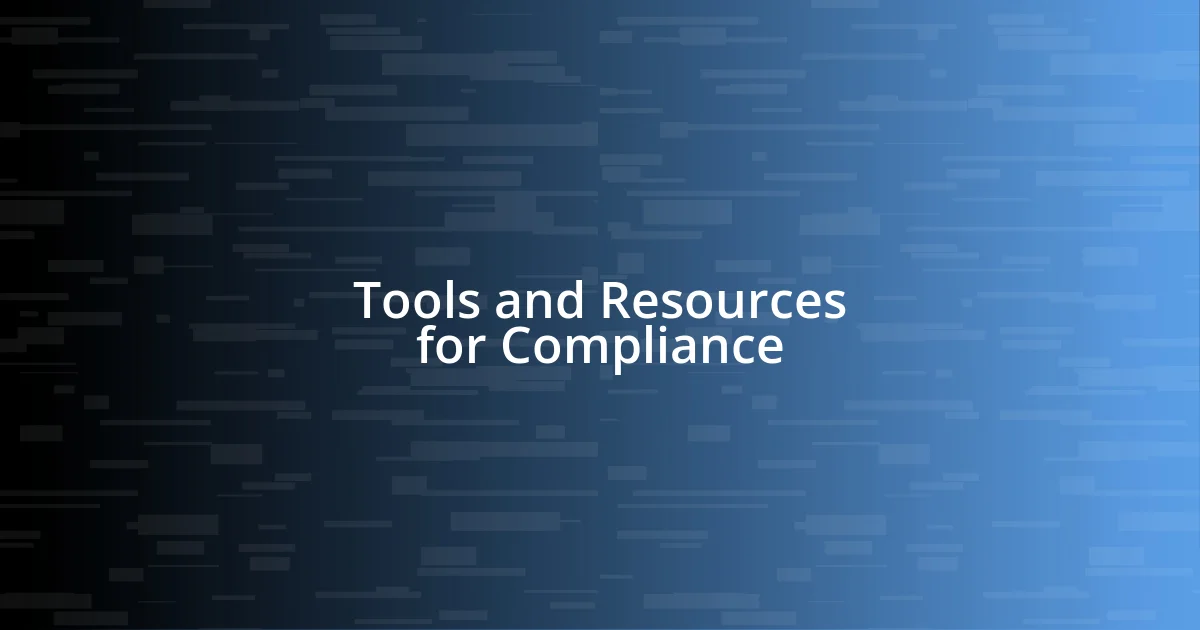
Tools and Resources for Compliance
Tools and resources for compliance have indeed played a pivotal role in my journey through cross-border regulations. I recall downloading an online compliance checklist that meticulously outlined every requirement for our target market. At first glance, it seemed like just another document, but as I went through it step-by-step, the sense of control and clarity it provided was astonishing. Have you ever found a simple tool that made a complex task feel manageable? For me, that checklist turned what seemed like a chaotic process into a systematic approach.
In my experience, dedicated compliance software is invaluable. I used a platform that integrated various regulatory updates in real-time, which drastically reduced the time spent sifting through regulatory changes. The convenience of having everything in one place was like having a personal assistant who never missed a beat. I still remember the moment when I realized how quickly we could pivot our strategy based on the latest updates, ensuring we remained compliant without losing momentum. Isn’t it reassuring to have tools that do the heavy lifting for you?
I also found that joining industry-specific forums and networks provided unexpected resources. Through one forum, I connected with peers facing similar challenges, and sharing our experiences was liberating. It wasn’t just about getting answers; it was about building a community of support and learning from one another’s successes and missteps. Have you ever tapped into a network for insights that you didn’t even know you needed? I certainly have, and it’s amazing how these connections can amplify your understanding of intricate compliance landscapes.
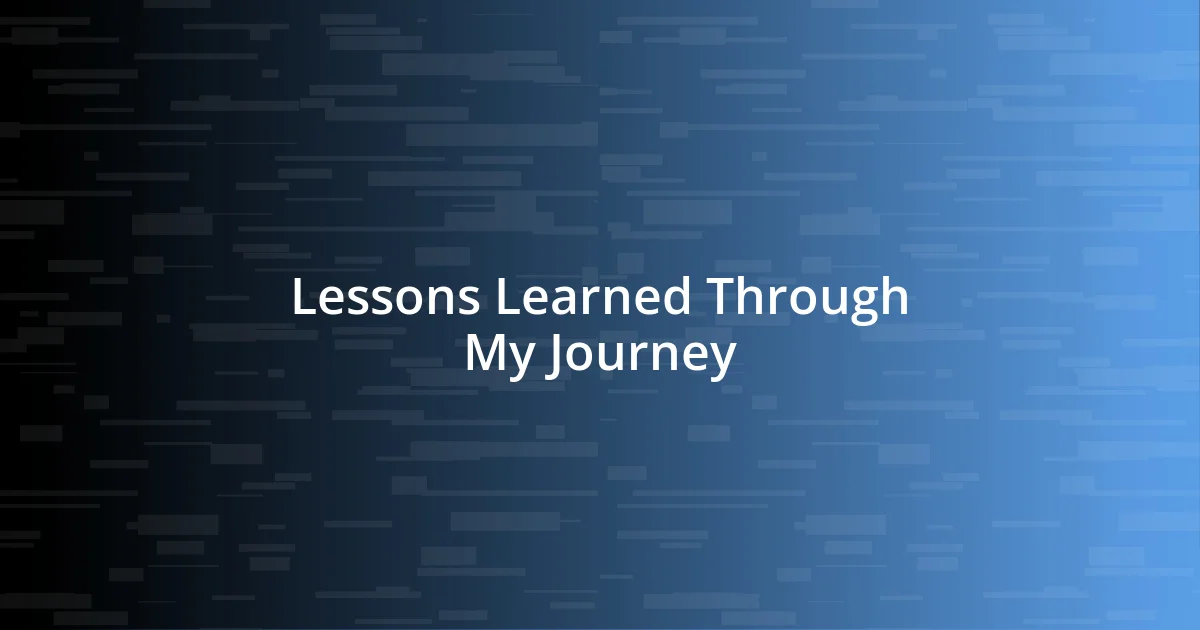
Lessons Learned Through My Journey
Throughout my journey with cross-border regulations, one standout lesson was the importance of patience. I remember a particularly stressful quarter when our team scrambled to adjust to new export restrictions. At first, it felt overwhelming, but I learned that taking a step back to fully digest the information allowed us to craft more effective strategies. Have you ever faced a situation where rushing led to more confusion? I can tell you that a measured approach often unveils solutions that quick fixes can overlook.
Another significant takeaway for me has been the power of local insights. During a project in a new market, our local partners provided invaluable context that completely shifted our approach. Initially, I thought we could operate solely on global standards, but their deep understanding of local practices opened my eyes. It made me realize how crucial it is to listen and adapt. Have you experienced a moment when local knowledge changed your perspective? I certainly have, and it’s a lesson that continues to shape how I engage with diverse markets.
Lastly, I discovered that embracing feedback is vital for growth. I recall a time when our compliance audit revealed several areas needing improvement. Initially, it felt daunting, but instead of seeing it as a setback, I viewed it as a roadmap for refinement. Engaging in open discussions about our shortcomings fostered a culture of continuous improvement within our team. Isn’t it incredible how feedback can become a catalyst for transformation? From my experience, inviting constructive criticism has proven to be one of the most successful strategies for refining our practices.


